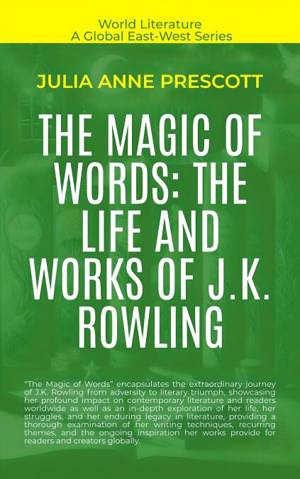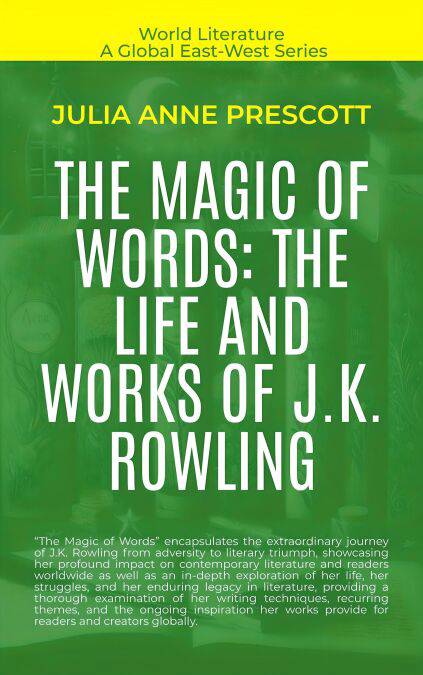
- Afhalen na 1 uur in een winkel met voorraad
- Gratis thuislevering in België vanaf € 30
- Ruim aanbod met 7 miljoen producten
- Afhalen na 1 uur in een winkel met voorraad
- Gratis thuislevering in België vanaf € 30
- Ruim aanbod met 7 miljoen producten
Omschrijving
Joanne Kathleen Rowling's transformation from struggling single mother to literary phenomenon stands as one of publishing's most extraordinary success stories. Born in 1965 in Gloucestershire, she created the Harry Potter series—seven novels that have sold over 500 million copies worldwide, been translated into more than 80 languages, and generated a multi-billion-pound entertainment empire.
Rowling's early life featured ordinary struggles that later influenced her fiction. After studying French at Exeter University, she briefly worked at Amnesty International before conceiving Harry Potter during a delayed train journey in 1990. Personal hardships followed—her mother's death, a brief marriage, divorce, and financial insecurity as a single parent—yet these challenges fuelled her creative ambition.
When "Harry Potter and the Philosopher's Stone" appeared in 1997, few anticipated its cultural impact. Rowling crafted an intricate wizarding world paralleling our own, populated with memorable characters and exploring themes of friendship, courage, and love. Her meticulous plotting across seven volumes revealed remarkable narrative skill, with early details proving crucial to the overarching story.
Beyond entertaining adventures, Rowling's work addresses complex moral questions. Her exploration of prejudice through "pure-blood" ideology, institutional corruption, and power's seductive nature resonates with real-world concerns, giving her fantasy universe genuine intellectual depth.
Post-Potter, Rowling has demonstrated versatility. Under the pseudonym Robert Galbraith, she created the acclaimed Cormoran Strike detective series. "The Casual Vacancy" explored small-town politics, while "The Ickabog" and "The Christmas Pig" showcased her continued talent for children's literature. Her screenplay work on "Fantastic Beasts" extended the wizarding world for new audiences.
Her philanthropy reflects personal experience with adversity. Through her charitable trust Volant and support for organisations like Comic Relief and Lumos, she has committed substantial resources to combating poverty and improving children's welfare globally.
In recent years, Rowling has become polarising due to her views on gender identity issues, generating both support and criticism—a complex chapter contrasting with her literary creations' universal appeal.
Nevertheless, Rowling's cultural significance remains undeniable. Her imagination has shaped a generation of readers, her success revolutionised publishing, and her characters have become fixtures in our collective imagination—testament to storytelling's enduring power.
Specificaties
Betrokkenen
- Auteur(s):
- Uitgeverij:
Inhoud
- Taal:
- Engels
- Reeks:
Eigenschappen
- Productcode (EAN):
- 9798231579709
- Verschijningsdatum:
- 6/05/2025
- Uitvoering:
- E-book
- Beveiligd met:
- Adobe DRM
- Formaat:
- ePub

Alleen bij Standaard Boekhandel
Beoordelingen
We publiceren alleen reviews die voldoen aan de voorwaarden voor reviews. Bekijk onze voorwaarden voor reviews.







